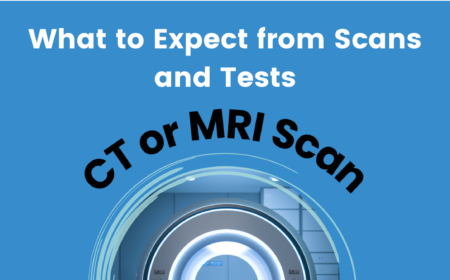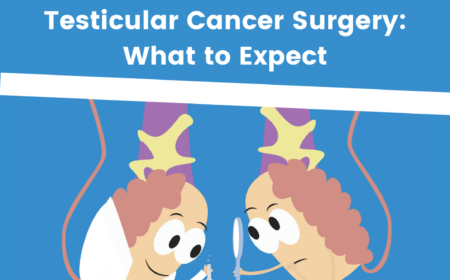Blog

Alright lads let’s get into it. You’ve had testicular cancer. That’s no small thing and the fact you’re on the other side of it means you’re a fighter, a winner, and a legend in the game. This shouldn’t be glossed over, but in the interest of sticking to the point and not beating around the … Continue reading Let’s Talk About Sex (After Testicular Cancer)

The first few stages of a testicular cancer diagnosis will usually involve an ultrasound scan and blood tests. We covered what you can expect from those tests in the previous blogs in this series. If the combined results of these tests suggest that a lump or abnormality may be cancerous, further investigation will be required. … Continue reading What to Expect from Scans and Tests: CT or MRI Scan

After testicular cancer surgery, you probably won’t feel the freshest and you may want to wash yourself. For the first 24 to 48 hours you will be advised not to bathe, wash or get the area wet. So unfortunately fellas, you may feel a bit grimy for a couple of days. This will probably be the … Continue reading Your First Shower After Testicular Cancer Surgery

In this third instalment of the Caregiver Chronicles series, we’ll discuss an oncologist’s role during cancer diagnosis, treatment, and recovery. As discussed in the second blog (Caregiver Chronicles: Meeting the Urologist) you will typically see an oncologist after you see your GP and a urologist to discuss any signs and symptoms you have. A urologist … Continue reading Caregiver Chronicles: Meeting the Oncologist

Product title ONE SURGICAL SUSPENSORY RECOVERY BANDAGE FOR YOUR BALLS – PROVIDES ‘COMFORT’ AND STABILITY Product features Product purpose This surgical suspensory bandage is typically used in medical settings, particularly after testicular cancer surgery, to provide support and stability to your scrotum during recovery. The purpose of this type of bandage is to: Product description … Continue reading Item for Sale: One Sexy, Sultry, Surgical Suspensory Bandage

An X-ray is a type of medical test that uses invisible rays of energy (radiation) to take pictures of your insides. It helps doctors see your bones, organs, and other tissues to check for problems like broken bones, infections, or tumours. In this case, it can be used to check if you have signs or … Continue reading What to Expect from Scans and Tests: X-ray

If you have been diagnosed with testicular cancer you will need to have a surgical procedure called an orchidectomy. This procedure removes the affected testicle and the tumour. This blog will let you know what to expect on the day of your surgery, as well as what will be involved in your aftercare and recovery. An … Continue reading Testicular Cancer Surgery: What to Expect

In this second instalment of the Caregiver Chronicles series, we’ll discuss the urologist’s role in a cancer diagnosis. As discussed in the first blog (Caregiver Chronicles: Going to Your GP) the first medical professional you will see if you have signs or symptoms of testicular cancer is your GP. Signs and symptoms of testicular cancer … Continue reading Caregiver Chronicles: Meeting the Urologist

Testicular cancer is most common in men aged 15 to 49. While this form of cancer has a high survival rate, understanding its progression and potential spread is vital for effective treatment. In this blog we will highlight where testicular cancer can spread, the likelihood of this happening, the impact the stage of cancer has, … Continue reading Where Can Testicular Cancer Spread?

An ultrasound scan is a valuable tool for diagnosing and guiding treatment for various medical conditions. It is most commonly recognised as a method for monitoring pregnancy in women. However, it can also be used to check men’s testicles for any abnormalities. This is essential because it’s non-invasive and highly accurate in identifying potential issues … Continue reading What to Expect from Scans and Tests: Ultrasound Scan

